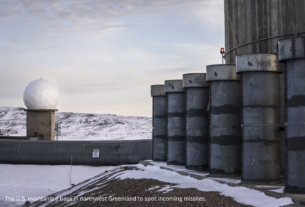The U.S. military has renamed Fort Liberty in North Carolina back to Fort Roland L. Bragg, marking a significant shift in base naming policies. Pete Hegseth, U.S. Secretary of Veterans Affairs, announced the change on Monday, stating that more adjustments could follow.
“This name reflects the legacy of General Bragg and the soldiers who trained here,” Hegseth said at the ceremony. The decision reverses the 2023 renaming, which removed the Confederate general’s name as part of broader military reforms.
Fort Bragg, home to elite Army units, carried its original name for over a century before the change. The installation has housed the U.S. Army’s airborne and special operations forces for decades.
Veterans and active-duty troops expressed support for restoring the historical title. Many viewed the original name as an important part of military tradition.
Hegseth hinted that additional base renaming efforts could follow. He emphasized that the administration seeks to respect history while maintaining readiness.
“This is just the beginning,” he said, without specifying which bases might be affected next. Some lawmakers argue that the military should focus on training and defense rather than renaming installations.
The original name change was part of a broader effort to remove Confederate references from military bases. The previous administration argued that such names did not reflect modern military values.
Critics of the renaming reversal say the change sends the wrong message. Some believe it reflects political influence rather than a focus on military priorities.
The renaming process has sparked debate about the role of history in the armed forces. Supporters argue that military heritage should not be erased, while opponents say past associations should not define the future.
Fort Bragg was named after General Braxton Bragg, a Confederate officer with a controversial military record. Some historians note that his leadership in the Civil War was marked by failures.
Despite Bragg’s military shortcomings, the base became a central training ground for U.S. Army paratroopers. Many soldiers who served there identify with the name, rather than its historical origins.
The renaming of Fort Liberty was part of a national effort led by the Naming Commission. The commission recommended new names for bases associated with Confederate figures.
Congress approved the changes, leading to the renaming of multiple installations across the country. The move was supported by military leadership at the time.
Hegseth’s announcement reflects a shift in policy under the current administration. Military leaders have not commented on whether other bases will follow suit.
Some analysts believe this change signals a broader realignment in military traditions. Others see it as a temporary response to political pressures.
Fort Bragg remains one of the largest military bases in the country. It hosts tens of thousands of service members and plays a key role in national defense.
Local officials have welcomed the return of the Fort Bragg name. Many businesses and residents in the area never adopted the Fort Liberty designation.
“This base has always been Fort Bragg to us,” a local business owner said. Signs and landmarks in the surrounding communities still reflect the original name.
The cost of renaming military bases has been a concern for some lawmakers. Changing signage, maps, and documents requires significant funding.
Despite the debate, Fort Bragg continues its mission of training and deploying military forces. Army leaders stress that the name change does not affect operational readiness.
Military historians note that base names have changed before. Some installations have been renamed multiple times throughout history.
The future of other renamed bases remains uncertain. Officials have not announced plans to restore names at other locations.
For now, Fort Bragg will continue under its restored title. Soldiers stationed there will carry on their training and missions as before.




